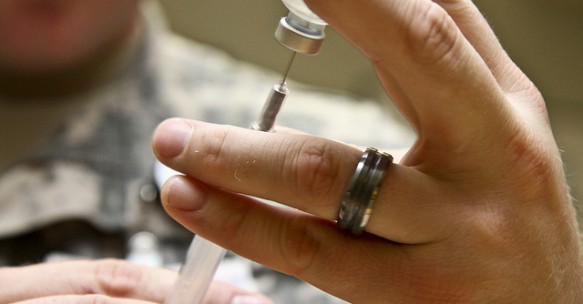
Researchers evaluate flu vaccines with IMI project
A research project focusing on the standardisation and development of assays for the assessment of influenza vaccine correlates of protection has begun work.
The FLUCOP project will provide the seasonal influenza vaccine community with improved or new tools to evaluate the vaccine’s ability to raise an immune response, allowing the comparability of clinical data across laboratories. The study, which has a budget of €13.9m and includes a €6.1m contribution form the IMI, will also pave the way for establishing improved and/or novel correlates of protection, i.e. measurable parameters that a vaccinated person is protected against subsequent infections or disease. The harmonisation of laboratory tests will ultimately contribute to increase the transparency of the results, and therefore the trust of the public in seasonal flu vaccination programmes.
Speaking about project, Patricia Londono-Hayes, EFPIA co-ordinator of FLUCOP, said: “This is an unprecedented collaboration between European vaccine manufacturers, first rate academic institutions, regulatory and public health agencies. The short term impact will be that results of clinical trials are more stringently comparable even if run not concomitantly and in different geographic areas or using different influenza vaccines.
“The long term impact will be the evolution of the regulatory guidance and ultimately the practices of the vaccine industry, not only in Europe but at global level. To achieve these goals we have built a consortium of 22 partner institutions, sharing expertise and experience in order to address the technical and scientific challenges and ensure reliable and accurate criteria for the assessment of the immunogenicity of seasonal flu vaccines.”
FLUCOP is a public private consortium of 22 partners from eight European countries, and involves experts from six vaccine manufacturers from Europe, SMEs, academic institutions, European public health governmental institutions and NGOs. The project will include consultation with partners from regulatory agencies, a mechanism ensuring that the regulatory aspects of the standardisation efforts are addressed and duly considered.






